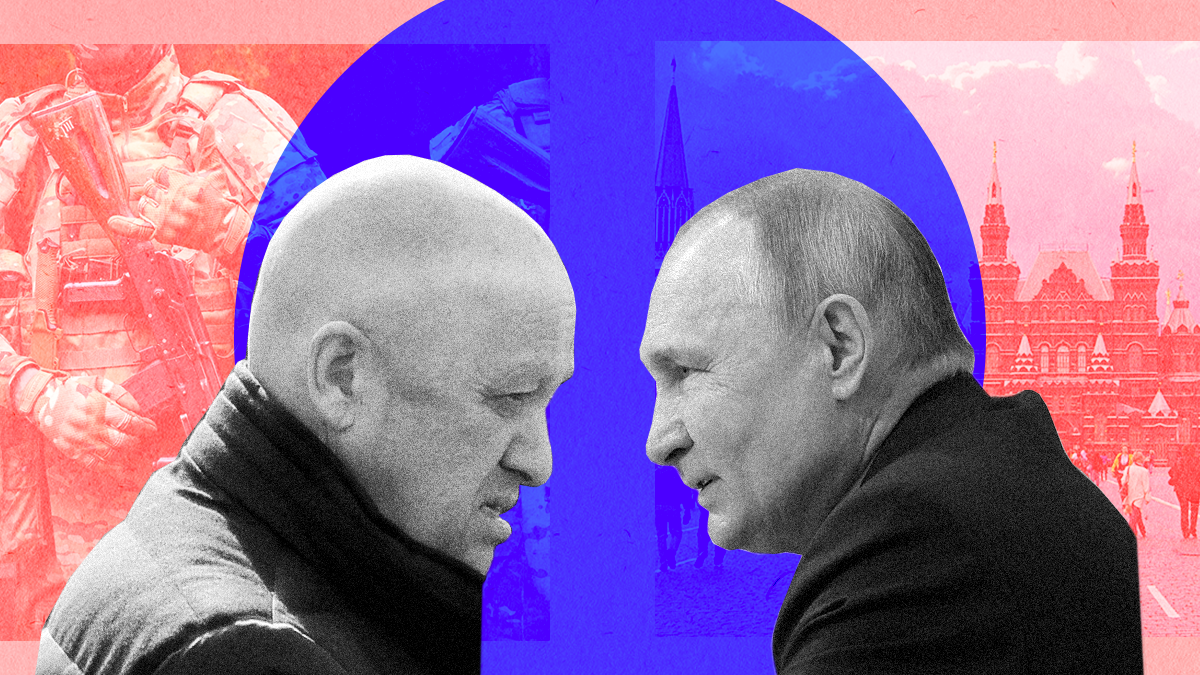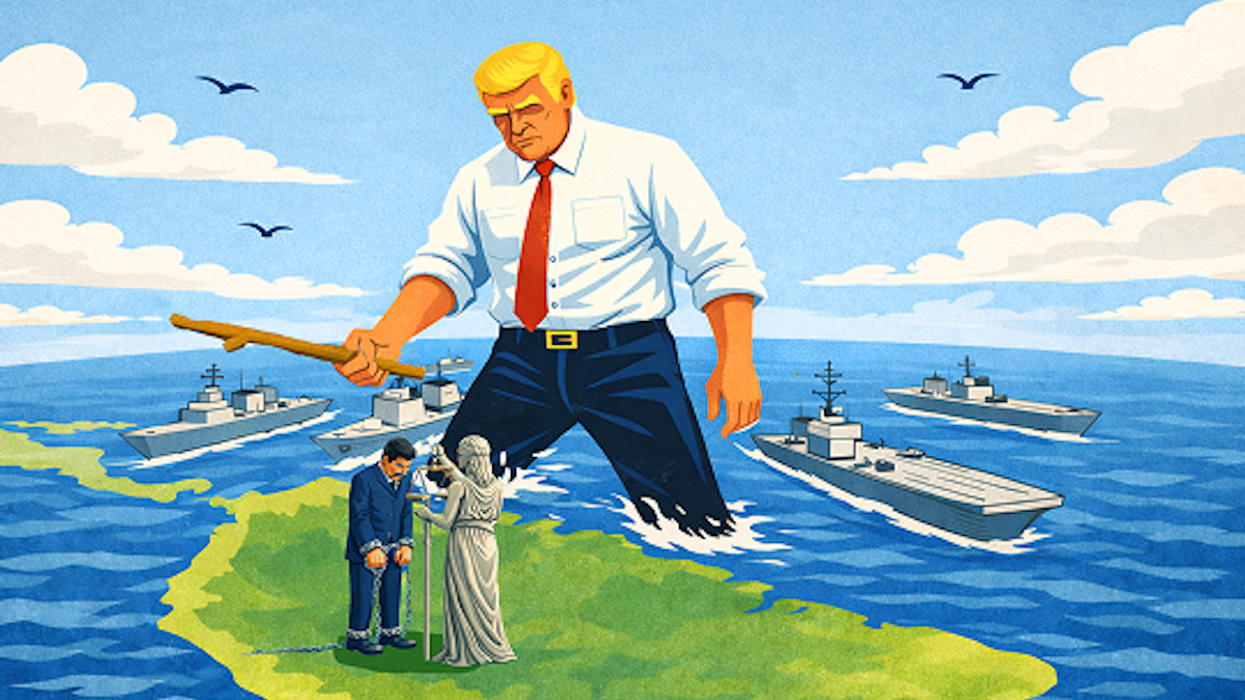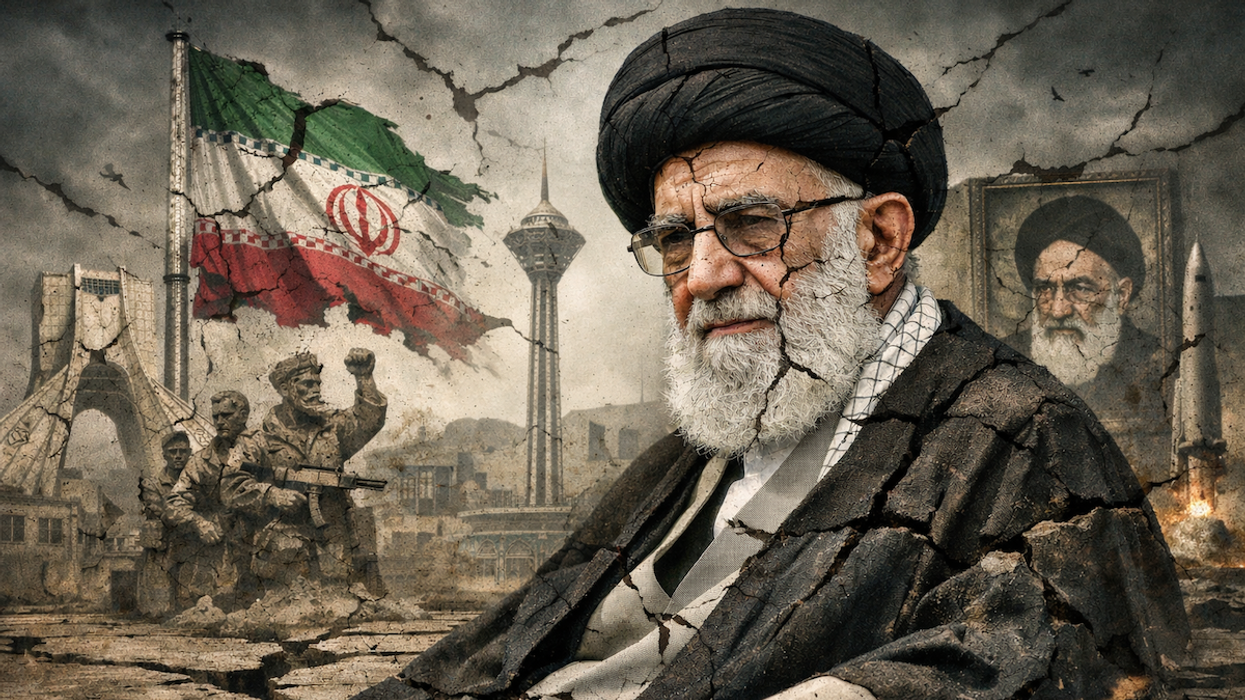What was Prigozhin thinking?
Anyone who watched Wagner chief Yevgeny Prigozhin over the past few months knows that he had grown progressively unhinged in the run-up to his mutiny, just as his political position had become increasingly untenable.
Prigozhin was furious at the leaders of Russia’s Ministry of Defense, whom he repeatedly accused of sending tens of thousands of Russian soldiers to certain death through their corruption, incompetence, and cowardice. Over 20,000 of his own fighters were killed in the bloody battle for Bakhmut – a town of only 70,000 inhabitants before the war. He publicly blamed Defense Minister Sergei Shoigu and Chief of the General Staff Valery Gerasimov for Russia’s casualties and battlefield struggles.
Notably, Russian President Vladimir Putin had largely allowed him to voice his criticism – a remarkable show of tolerance in a country that punishes “discrediting” the army with 5-15 years of jail time. Prigozhin got this dispensation in no small part because it was Wagner’s seasoned troops that had achieved Russia’s most notable battlefield victories in an otherwise sputtering invasion. In part, it was because Prigozhin had always been extremely careful not to criticize Putin directly.
This started to change a couple of weeks ago when the Defense Ministry announced that all paramilitary forces fighting in Ukraine would have to sign contracts directly with the ministry by July 1, ending their autonomy and absorbing them into the regular armed forces. Chechen warlord Ramzan Kadyrov said he and his troops would comply; Prigozhin said Wagner would not, claiming his men didn’t want to fight alongside poorly trained conscripts or under the command of Shoigu and Gerasimov.
Then, at a rare public meeting with military bloggers, Putin reiterated the order, backing the ministry over Prigozhin. You’d think that would’ve been the end of it, but instead of taking the loss, Prigozhin doubled down on his refusal to give up control of Wagner – an unprecedented act of direct insubordination against Putin.
At that point, Prigozhin knew the clock was ticking for him. Knowing he was a dead man walking from the moment he disobeyed Putin’s order, he opted to roll the dice in a last-ditch attempt to force the president to reconsider and salvage his position (and possibly his life) – a decision that smacked more of desperation than of rational calculation.
Why did Prigozhin stop before getting to Moscow?
I think both starting and stopping the mutiny can be understood as desperate acts of self-preservation. This will be one for historians to debate, but I’m inclined to believe Prigozhin probably didn’t set out to overthrow Putin in the first place, as he had neither a plan nor the allies to do so. All he wanted was to prevent Wagner from being disbanded and himself from losing his power.
The biggest reason why I believe this is that Prigozhin couldn’t possibly have thought that an outsider like himself could topple the regime with fewer than 5,000 men. Let’s keep in mind that Prigozhin was a creature of Putin: He was built up by, loyal to, and entirely dependent on the Russian president. He was not a security council insider. He did not have a power base in Moscow. He had no one in or near the Kremlin who was prepared to side with him against Putin.
That’s surely one reason why as his Wagner column drew close to Moscow, we saw no defections in the military, the government, or among the elites. And it’s why when he got thrown a lifeline just as he and his men were about to face certain death at the hands of troops reporting to Putin himself (rather than the Ministry of Defense), he grabbed it with both hands.
Prigozhin likely never had a shot of taking the Kremlin – and he and everyone else knew it all along. What he did have was a modest amount of leverage, which explains why he didn’t get killed and why he thought he could pull the stunt off in the first place. The “march for justice” was an ill-advised bargaining tactic to force Putin to cave on the issue of Wagner’s autonomy.
Why did Putin negotiate a surrender instead of just killing Prigozhin?
I think this is mostly a matter of timing.
The war in Ukraine is at a critical juncture for Russia. The Ukrainian counteroffensive is only just getting started, with fewer than three of Ukraine’s 11 battle-ready divisions positioned to attack currently involved in the fighting. Ukraine has yet to attempt to breach any of Russia’s three defensive lines, instead biding its time while conducting shaping operations and probing attacks on the first line of defense. By contrast, the Russian military is already heavily committed to trying to hold back Ukraine’s counteroffensive, and Putin is highly reluctant to order another mobilization.
A battle against Wagner on Russian soil would have distracted – potentially fatally – from Russia’s defense of its front lines, handing Ukraine a unique window of opportunity to strike while Wagner troops, the Russian army, and Kadyrov’s forces were occupied elsewhere.
Plus, by backing down and refraining from killing Prigozhin immediately, Putin lost little that he hadn’t already lost when Prigozhin initially defied him and marched toward Moscow. At the end of the day, Putin got everything he could’ve wished for: Shoigu and Gerasimov are still in their positions, Wagner is coming under Defense Ministry control, and Prigozhin is defanged and in exile. All without televised bloodshed, and without sacrificing much in terms of warfighting effectiveness given that Wagner had already been rotated out of the front.
The only concession Putin made was allowing Prigozhin, whom he called a “traitor” and “terrorist,” to live – for now. But Prigozhin is (reportedly) in Belarus, essentially a non-sovereign vassal of Russia chock-full of Russian spies, soldiers, and assassins. Putin is free to renege on the deal and kill or arrest him at a time of his choosing. I’d be very surprised if Prigozhin is still a free man by the end of the year.
What are the implications for Putin and Russia going forward?
This was by far the most serious threat to Putin’s 23-year rule.
On the one hand, you’re not supposed to be able to defy Putin in Russia this way and get away with it. Yet the men who shot down and killed an estimated 13 Russian pilots on their way to Moscow were pardoned. And the man who openly defied Putin’s orders, discredited his rationale for the war in Ukraine, and whom Putin declared a traitor on public television, is still alive (even if not for long). Putin has jailed and killed people for a lot less, so this makes him look weak before the Russian public and the elites.
On the other hand, Putin’s regime was tested over the weekend, and the regime ultimately held together. Yes, there were a lot of people who didn’t fire to stop Wagner troops from advancing, but there were virtually no defections inside the Russian government, the military, or among elites. The government is still functioning normally, and the war in Ukraine is going the way it did before the mutiny. Putin is more vulnerable on the back of it, but that’s more a long-term than an immediate issue.
In a way, this feels a bit like an extreme version of Jan. 6 in the United States (pardon the comparison): an event that was previously unthinkable, that shook people’s faith in the system, that exposed a structural weakness in domestic institutions, but that changed little in the country the day after.
The likelihood of regime change in Russia remains near zero … until it happens. But these events show that the tail risks are fatter than we thought.
What does this mean for the war in Ukraine?
The Ukrainians will try to take advantage of Russia’s domestic turmoil to make gains in their counteroffensive. Indeed, just in the last two days, they’ve reportedly seen progress in the Zaporizhzhia and Kherson regions (although the significance of these gains so far is marginal).
However, I don’t see the events of the weekend dramatically improving Ukraine’s odds on the battlefield in the near future. With the Wagner threat dissolved, Russia won’t need to shift troops from Ukraine to Russia to deal with them. Likewise, Wagner was not operating in the south where the Ukrainian counteroffensive is focused. So in terms of the actual fighting, beyond the effect that the mutiny might have on Russian morale, the overall military impact at this point is limited.
That said, the incident is a problem for Putin’s credibility with elites and the Russian public, and this political vulnerability could make him more sensitive to major battlefield losses in the coming months. If we get to a point later in the summer or fall where Ukraine starts to threaten Crimea or the land bridge, the risk of a major Russian escalation (such as blowing up the Zaporizhzhia nuclear plant or using a tactical nuclear weapon) in response would go up. The only thing more dangerous than a strongman is a weak strongman.
The one lesson from this episode is that when push comes to shove, Putin is singularly focused on his own survival, and he is willing and able to accept any outcome to ensure it. This is an important revealed preference because it speaks to the credibility of his stated goals and so-called “red lines” in Ukraine, which in turn matters for how Ukraine and NATO countries think about escalation.
It means that Putin may be willing to tolerate more aggressive behavior from NATO and Ukraine than we imagined if he thinks retaliation would lower his chances of survival. It also means that Putin could consider any outcome for the war, including negotiations, as long as he thinks he can survive it.


















